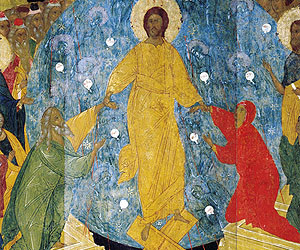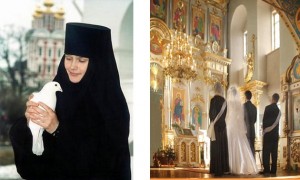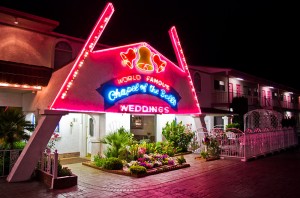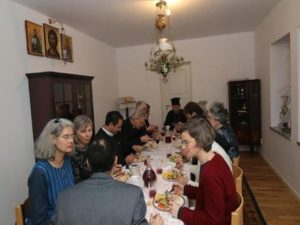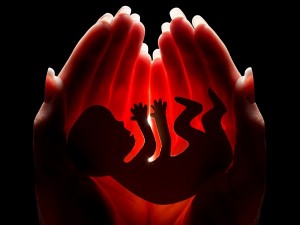The Marriage of Love and Hate
12 January 2021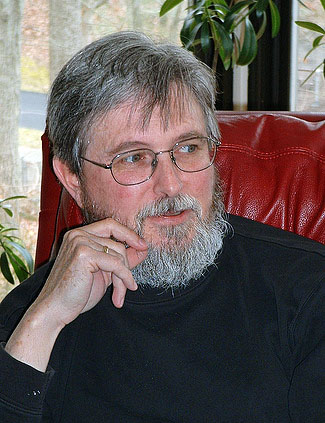 The genius of Dostoevsky lies in the profound theological insight of his tumbled novels. They can be difficult reads for many people – particularly in our modern setting. He has “too many characters” and they “talk a lot.” His characters are complex:
The genius of Dostoevsky lies in the profound theological insight of his tumbled novels. They can be difficult reads for many people – particularly in our modern setting. He has “too many characters” and they “talk a lot.” His characters are complex:
I was a scoundrel, and yet, I loved God… Good and evil are in a monstrous coexistence within man.
So says Dmitri Karamazov. And this statement describes all of Dostoevsky’s characters. Everyone is a mix of good and evil. There are no “good guys” and “bad guys.” And Dostoevsky would argue that this is simply true always. As such, morality is a non-starter. We are not created for the pleasantries of morality. Every effort at “moral” living simply yields hypocrisy.
Beauty! Besides, I can’t bear it that some man, even with a lofty heart and the highest mind, should start from the ideal of the Madonna and end with the ideal of Sodom. It’s even more fearful when someone who already has the ideal of Sodom in his soul does not deny the ideal of the Madonna either, and his heart burns with it, verily, verily burns, as in his young, blameless years.
Again, the character Dmitri Karamazov is speaking. It is this honest look at the heart of man that so impresses the lovers of Dostoevsky’s work. But there is profound theology here as well. For morality, the various systems of do’s and don’t’s, good and bad, measured and weighed according to some objective standard or principled list, simply fails. It mocks the reality of human life, looming over humanity as an abstract ideal, ever shifting and changing, judging and crushing, never accurately describing the reality of our interior life.
The lack of a true morality and the mix of good and evil easily drives Dostoevsky’s characters to despair. It is a tragic mix that can easily produce nihilism – the belief (or despair) that the world is bereft of meaning. It is this courageous journey to the very edge that gives an authenticity to Dostoevsky’s work. There is no compromise with facile explanations or platitudes.
In perhaps the most searing attack on human goodness (or the goodness of God) in all of literature, Ivan Karamazov narrates the chapter, “Rebellion.” There we are taken into the depths of human suffering and cruelty, made even worse by Ivan’s relentless relating of the suffering of a child. Ivan can accept no subsequent restitution by God. “I refuse the ticket,” is his summary.
Not only is good always mixed with evil, the beautiful haunted by the ugly, loved mixed with hatred, but we are utterly disgusting in midst of it all. And it is there that Dostoevsky will repeatedly bring a character to the point of suicide (or past it). It is the ultimate act of nihilism. Life is meaningless. And he means not to bring his readers to despair, but to state the case for human existence in its entirety, without mitigation.
It is at this very point of despair that Dostoevsky introduces the heart of redemption. He does not solve the problem of existence and its contradictions through reason or balanced equations. Rather, meaning and existence come through suffering love. His characters are never delivered through understanding, but by the encounter with others, most specifically, others who are suffering.
The murderer, Raskolnikov, in Crime and Punishment kneels before the prostitute, Sonya, and kisses her feet, saying: “I have kneeled, not before you, but before all of suffering mankind.” And the Elder Zosimas explains that he kneeled before Dimitri Karamazov, with the following words: “Yesterday, I knelt before all that he (Dimitri) was going to suffer.” And Ivan Karamazov says, “Tomorrow, the Cross, but not the Scaffold. No, I shall not hang myself. I could never commit suicide.” The devil had said to him (speaking truthfully), “People suffer, but they live; they live an actual life, not an imaginary one, because it is life when you suffer.”
Thus it is in the Cross, the Suffering God, that humanity finds meaning and existence. For this is true existence – not an abstraction nor an imagination – but the “whole catastrophe.” This mystery goes to the very root of our faith. God has not offered us a model of existence that excludes the Cross: the Lamb is slain from the foundation of the world.
And the suffering that we embrace is not an abstraction, or even our own: it is the suffering of the Other (as Met. John of Pergamum describes it). Our embrace of the suffering Other is the Christian understanding of love: “Greater love has no one than this – that a man lay down his life for his friends.”
There are hints of this mystery even in the Garden, before the Fall. For we are not set in a paradise removed from suffering. God creates a paradise, but within it He places a tree from which we may not eat. From the beginning we have the contradiction. We love the beauty and wonder of the Garden and we hate that we cannot eat whatever we want. We despise the fast God offered along with Paradise.
It is our refusal of the contradiction that becomes our sin – our refusal of existence on God’s terms. The existence we demand for ourselves is one without the contradiction of the Cross. We refuse the suffering – and find that we cannot escape it.
And so, in Christ, God shows us the way to true life and walks it Himself. In the Cross Christ fully embraces the whole contradiction of our existence. As Love, He endures hate and unites Himself to the hating crowds, “Father, forgive them, for they know not what they do.”
And in the Resurrection we see that the contradiction has its resolution. But the Resurrection cannot be reduced to an equation, nor even stated as a principle. The Resurrection is irreducible Meaning in itself. To him who bows before all we must suffer, God grants the redemption of the Resurrection.
Perhaps the greatest theological tragedy in the Christian faith is the reduction of the Cross to the moment of its history and to a theological transaction (“Christ died for our sins”). Of course these things are true, but they do not express the fullness of the truth.
Just as the Cross is found in the “Lamb slain from the foundation of the world,” so it is also found in every “suffering other.” Suffering is never an abstraction – it is always concrete and specific. And each concrete and specific suffering is also the suffering of Christ for He has taken upon Himself the suffering of us all. When we “bow down” before the suffering of others, we unite ourselves with the suffering of Christ, which is the fullness of love. And in sharing the fullness of that love we also find ourselves within the Resurrection.
There is no Resurrection apart from the Cross – thus there is no salvation apart from the Cross. No salvation – no meaning – no purpose – no understanding – no answer – no life apart from the Suffering God.
This is not only the faith of Dostoevsky – it is also the faith of the Orthodox.
I want to acknowledge my indebtedness to Met. John (Zizioulas) of Pergamum for much of the analysis of Dostoevsky.







